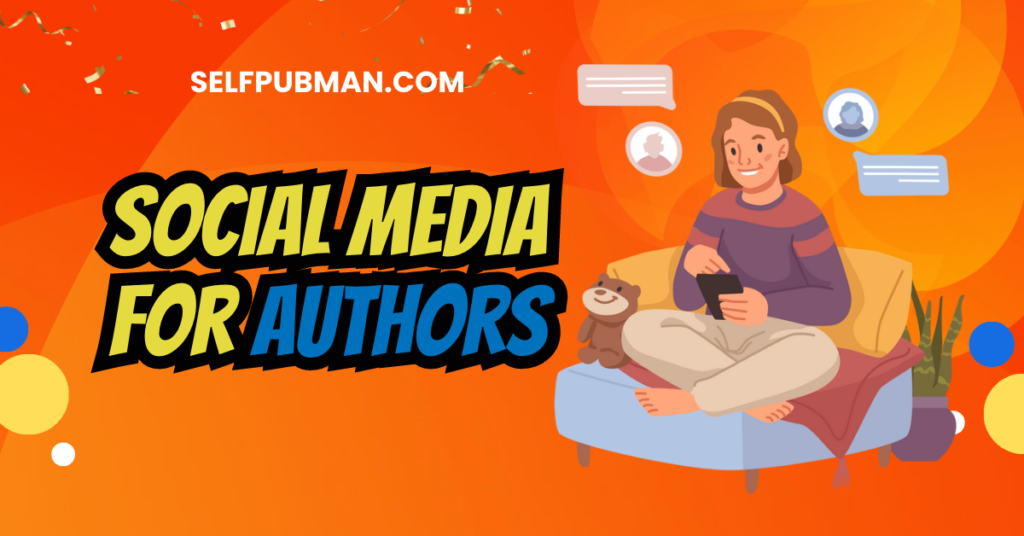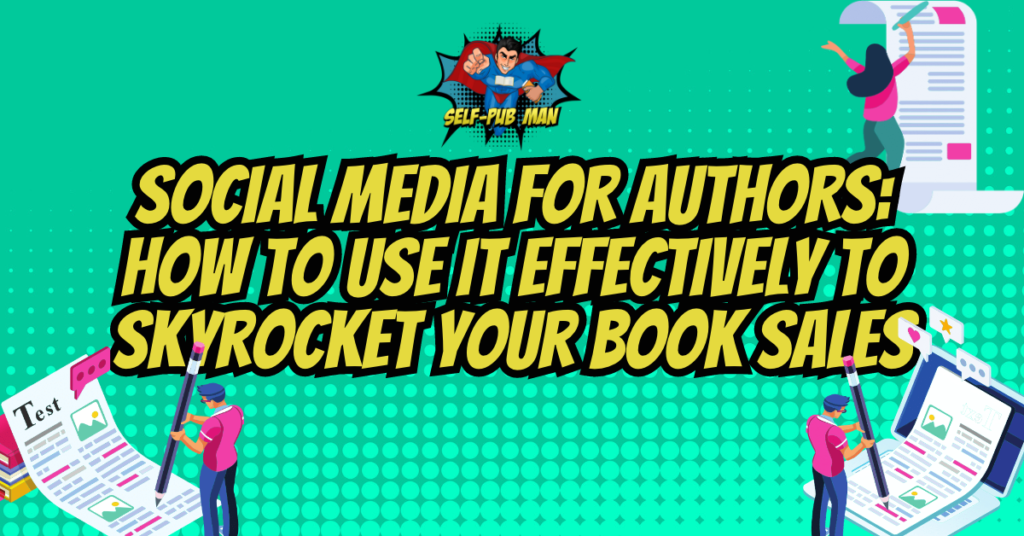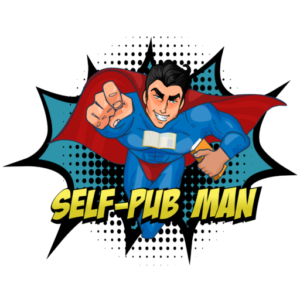In today’s digital age, social media has become an indispensable tool for authors to connect with readers, build a loyal fanbase, and ultimately skyrocket their book sales. By leveraging the power of social media platforms, authors can reach a wider audience, create a strong author brand, and generate buzz around their books. This article about social media for authors will explore how authors can use social media to boost their book sales and establish a successful online presence.
Building an Author Brand on Social Media
Authors must build a strong author brand to use social media for book promotion effectively. This involves establishing a consistent online presence and choosing the right social media platforms to engage with their target audience. By maintaining a consistent brand image and tone across platforms, authors can create a recognizable identity that resonates with readers and builds trust.
Creating Compelling Content
Compelling content is critical to capturing the attention of social media users. Authors can leverage social media to share snippets from their books, providing teasers that pique the interest of potential readers. Additionally, sharing behind-the-scenes glimpses into the writing process can humanize the author and create a sense of connection with the audience. Finally, conducting author interviews and hosting Q&A sessions allows authors to engage directly with their readers, fostering a sense of community.
Building an Engaged Community
Engaging with readers on social media is essential for building a solid and loyal community of readers. Authors can encourage reader interaction by asking questions, facilitating comments, and responding to messages promptly. Authors can cultivate a sense of connection and loyalty by actively participating in conversations and showing genuine interest in their readers. Running contests and giveaways can also incentivize engagement and help expand the author’s reach. Collaborating with other authors and influencers in the industry can further amplify the author’s visibility and attract a wider audience.
Leveraging Social Media Advertising
Social media platforms offer effective advertising tools authors can utilize to reach their target audience more effectively. Authors can ensure the right people see their ads by targeting specific demographics, interests, and book genres. Crafting compelling ad copy and visuals is crucial in grabbing users’ attention by scrolling through their feeds. Authors can run promotions, discounts, or limited-time offers to entice readers to purchase their books. Tracking and analyzing the performance of social media ads allows authors to optimize their campaigns and allocate their resources wisely.
Networking with Industry Professionals
Social media gives authors unprecedented access to industry professionals such as literary agents, publishers, book reviewers, and bloggers. Authors can connect with literary agents and publishers to increase their chances of getting their work noticed and published. Engaging with book reviewers and bloggers can help generate buzz and positive reviews for their books. Participating in author communities and forums enables authors to share insights, exchange ideas, and learn from fellow authors. Additionally, attending virtual and physical book events allows authors to network with industry professionals and potential readers.
Maximizing Book Launch Impact
A well-executed book launch can significantly impact book sales and long-term success. Authors can use social media to build anticipation leading up to the launch by sharing teasers, countdowns, and exclusive content. Organizing virtual launch events, such as live readings or Q&A sessions, allows authors to engage directly with their audience and create a buzz around their book. Encouraging pre-orders and reviews from loyal readers can help generate early momentum and social proof. Leveraging social media during the book launch period is crucial in maximizing visibility, engagement, and sales.
Measuring Success and Making Adjustments
Tracking key metrics and analytics is essential for authors to evaluate the effectiveness of their social media strategies. Monitoring audience engagement, reach, and conversion rates provides valuable insights into what works and needs improvement. Authors can experiment with different techniques, such as varying posting frequency, content types, or advertising approaches, and analyze the results. Making data-driven decisions allows authors to refine their social media approach and maximize their impact on book sales.
Conclusion
Social media has revolutionized how authors connect with readers and promote their books. By leveraging social media platforms effectively, authors can build a strong author brand, engage with their audience, and skyrocket their book sales. Authors must create compelling content, foster an engaged community, leverage social media advertising, network with industry professionals, and maximize the impact of book launches. By measuring success, making adjustments, and staying consistent, authors can harness the power of social media to establish a thriving online presence and achieve their book sales goals.

FAQs
- How often should authors post on social media?
- It is recommended that authors maintain a consistent posting schedule on social media. Posting at least a few times per week helps to stay visible and engaged with the audience.
- Which social media platform is best for book promotion?
- The choice of social media platform depends on the target audience and genre. Facebook and Instagram are popular choices, but authors should research and identify platforms where their readers are most active.
- Is it necessary to hire a social media manager?
- Hiring a social media manager can benefit authors with limited time or expertise in managing their social media presence. A social media manager can help create and execute a comprehensive strategy, optimize content, handle engagement, and monitor analytics, allowing authors to focus on writing and other aspects of their authorship.
- How can authors handle negative feedback on social media?
- Negative feedback is inevitable, but authors can approach it constructively. It’s important to respond calmly and professionally, addressing concerns and offering solutions if applicable. Engaging in a dialogue with readers can often turn a negative experience into a positive one, demonstrating care and responsiveness.
- Can social media help self-published authors?
- Absolutely! Social media is a powerful tool for self-published authors to gain visibility and connect directly with their readers. Self-published authors can effectively promote and sell their books by building an engaged community, showcasing their work, and leveraging social media advertising.






